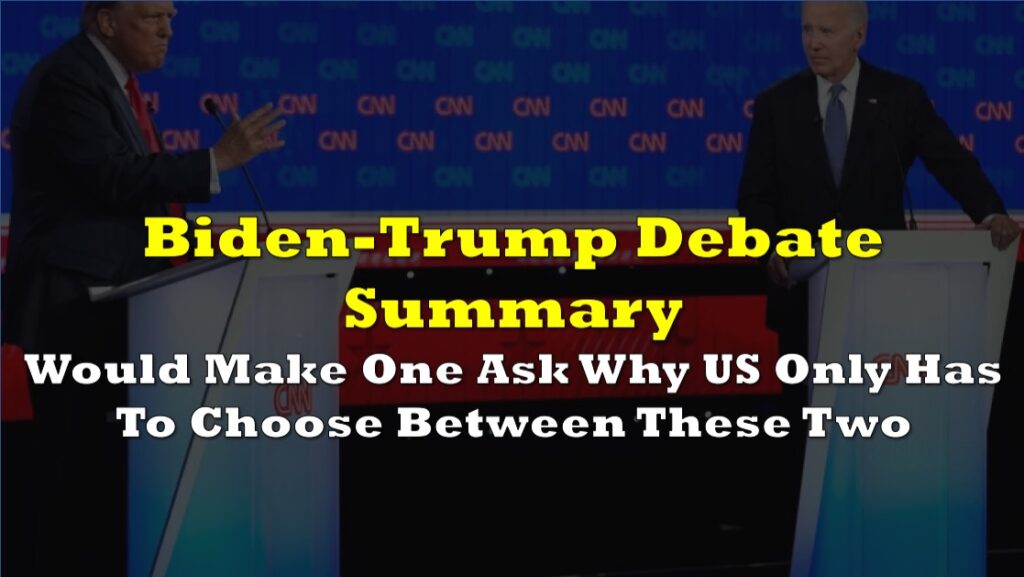As the 2024 U.S. presidential election approaches, concerns are mounting over two powerful, often opaque forces in the digital landscape: the algorithms that decide what political content people see and the prediction markets that invite users to bet on electoral outcomes.
Both have the potential to shape public perception and sentiment, but each comes with its own set of rules and pitfalls that could leave users disillusioned.
Analyst Lauren Balik recently shed light on both these issues, voicing frustration with how tech and finance are positioning themselves as referees in the democratic process. Balik, who claims she was once approached to manage Twitter’s algorithms during election season, warns that both prediction markets and social media algorithms may not be as fair or transparent as they claim to be.
Algorithms and Election Season
Algorithms are the hidden machinery behind every social media feed, dictating which voices rise and which fall. In the context of elections, algorithms can wield extraordinary influence, affecting how millions of people perceive candidates, policies, and even the integrity of the voting process. While tech giants like Meta, Google, and X (fka Twitter) argue that their algorithms are neutral, industry insiders have suggested otherwise, revealing that these systems can be easily manipulated to prioritize certain narratives.
Balik, who has worked extensively in data science, claims she was once offered a role by Andreessen Horowitz (a16z) to manage Twitter’s algorithms. This position, she says, was focused on deciding “who gets muted and who gets amplified” during election season, underscoring just how much control tech companies can exert over public discourse.
“I was almost Twitter/X’s algorithm czar,” she posted, alluding to a potential role in curating or suppressing content related to high-stakes topics.
I was almost Twitter/X's algorithm czar – the person in charge of deciding who gets muted and who gets amplified during election season or regarding whatever Andreessen Horowitz and Joe Lonsdale (he's going to prison, btw) are promoting.
— Lauren Balik (@laurenbalik) November 1, 2024
I'm one of very few people who actually… pic.twitter.com/8A9RYokDIx
Her decision to decline the role was partly rooted in concerns about the ethical and legal risks of such concentrated power, including the possibility of FBI involvement due to the influence these algorithms wield over public opinion.
The notion that Silicon Valley could handpick an “algorithm czar” to steer political discourse raises serious ethical questions. Who decides what qualifies as “misinformation”? And to what extent are algorithms suppressing voices that challenge dominant narratives, particularly those that align with the tech industry’s financial or political interests.
Prediction Markets
Meanwhile, prediction markets like Kalshi and Polymarket are capitalizing on election season by allowing users to bet on the outcomes. On the surface, these platforms offer a tantalizing proposition: predict the winner of the 2024 election and walk away with a profit.
However, as Balik and others have pointed out, the reality is much murkier. Both Kalshi and Polymarket operate with complex rules that could prevent bettors from cashing out until well after Election Day, leaving them financially stuck.
I really cannot handle any more bad prediction market takes about "arbing" this or that.
— Lauren Balik (@laurenbalik) November 1, 2024
I'm positive almost none of the people betting have even read the terms.
For example, Kalshi's resolution cannot occur until the inauguration on January 20, 2025.
Polymarket requires the… pic.twitter.com/RyHfka3mVl
Kalshi, a regulated exchange in the United States, has opted for a highly conservative approach to election betting. Instead of resolving bets based on Election Night projections, Kalshi’s market on the 2024 presidential election won’t pay out until January 20, 2025—Inauguration Day. This means that even if there is a clear winner by November, bettors will have their funds frozen for an additional two and a half months.
According to Kalshi’s official rule summary, the market will only resolve “if Donald Trump or another representative of the Republican party is inaugurated as President for the term beginning January 20, 2025.”
Balik criticized this prolonged lock-up period, warning that most bettors don’t realize their money could be held hostage for months. This approach, while arguably prudent, appears designed to insulate Kalshi from any disputes over Election Day results. Yet, for bettors expecting a quick payout, this could be a rude awakening, especially in an election cycle likely to be fraught with recounts and legal challenges.
The decision to tie payouts to Inauguration Day also reflects the increasing conservatism in financial and tech spheres surrounding political events. By delaying resolution until the official swearing-in, Kalshi effectively sidesteps the chaos that might unfold if election results are disputed. But in doing so, it also reveals a fundamental distrust in the election process, a sentiment that could discourage traders who expect their bets to yield timely returns.
On the other hand, Polymarket, a blockchain-based prediction platform, has its own stringent rule: it will only resolve its 2024 presidential market when three major media outlets—The Associated Press (AP), Fox News, and NBC—declare the same winner. According to Polymarket, “This market will resolve once all three sources call the race for the same candidate.” If these media organizations fail to agree on a winner, Polymarket will fall back on who is inaugurated in January 2025.
Given that each of these outlets has different editorial biases, Polymarket’s rule could lead to an indefinite holding period, especially if media organizations hesitate to call a contested race.
This reliance on media consensus also exposes Polymarket to broader questions of bias and reliability. In a landscape where news outlets are frequently accused of slanting coverage, what happens if one outlet calls the race while another hesitates, or if political pressure influences their decisions?
Who Benefits?
The intersection of algorithmic control over information flow and the financialization of election outcomes via prediction markets raises troubling questions about the integrity of both platforms. Balik’s skepticism suggests that neither social media algorithms nor prediction markets operate with users’ best interests in mind. Instead, both appear designed to protect the interests of tech and finance insiders, leaving the public in the dark about their true intentions.
In the case of social media algorithms, the question of “who gets amplified and who gets silenced” isn’t just about political bias; it’s also about financial gain. Platforms like X and Facebook generate revenue by amplifying content that drives engagement, which often includes sensational or polarizing political content. The result? An ecosystem where fringe ideas are given undue attention, while moderate voices may be drowned out or deliberately suppressed. If social media companies are indeed appointing “algorithm czars” to control election content, as Balik suggests, the potential for abuse is staggering.
Prediction markets, meanwhile, stand to profit from prolonged election uncertainty. By requiring extended lock-in periods or media consensus, platforms like Kalshi and Polymarket may benefit financially from funds held for longer durations, potentially profiting from interest on locked capital or increased trading fees as users attempt to hedge against unexpected outcomes. For users, however, these rules introduce an additional layer of financial risk, with payouts delayed by months and outcomes subject to media bias or political volatility.
As Balik astutely noted, “I’m positive almost none of the people betting have even read the terms.”
Information for this briefing was found via the sources mentioned. The author has no securities or affiliations related to this organization. Not a recommendation to buy or sell. Always do additional research and consult a professional before purchasing a security. The author holds no licenses.









